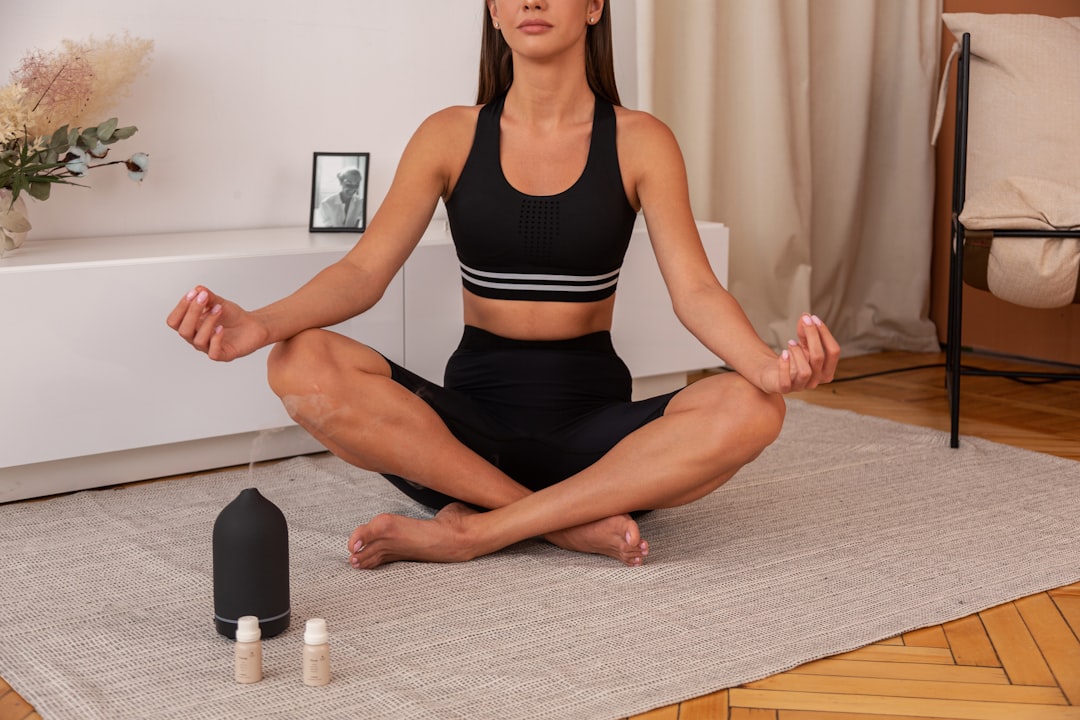Related
Essential Stress Management Practices for Holistic Well-being
A comprehensive guide to understanding Essential Stress Management Practices for Holistic Well-being and incorporating these practices into your...
Popular topics
03 min reading in—Stress Management
Discover serenity with "Unlock Stress Relief: 7 Holistic Strategies for Inner Calm." Dive into a transformative journey using mindfulness, herbal remedies, and other natural techniques to alleviate stress. Embrace harmony within and boost your well-being with these empowering methods designed to soothe your mind and rejuvenate your spirit for a balanced life.

In our fast-paced world, stress can sometimes feel like an unending presence. However, acknowledging that stress is a natural response means we can also seek out effective strategies to manage it. The quest for inner calm doesn't require you to mediate on a mountain top; instead, it's about incorporating holistic practices into your daily life. Unlock stress relief right where you are, with these seven strategies that promote peace and balance.
Before diving into strategies, it's important to recognize that stress isn't inherently bad. It's your body's way of responding to challenges and threats—it’s a survival mechanism. However, chronic stress can lead to a myriad of health issues, including hypertension and anxiety disorders.
The magic lies in understanding and managing stress, thereby transforming it into a catalyst for growth rather than a constraint. Let’s explore some holistic strategies that nurture inner calm and enhance your overall well-being.
Mindfulness meditation is a practice that encourages awareness of the present moment through non-judgmental attention. It's a powerful tool for releasing stress and achieving a clear, tranquil state of mind.
Studies indicate that regular meditation can reduce the density of gray matter in the amygdala, a region of the brain that processes stress and anxiety, leading to reduced stress levels1.
What you eat directly affects not only your body but also your mind. There's growing evidence of the impact of gut health on mental well-being, often referred to as the gut-brain axis. This relationship underscores the importance of a balanced diet for stress management.
Exercise is more than just a tool for physical fitness; it's a fundamental component of mental wellness. Engaging in physical activity releases endorphins—the body's natural mood elevators—and helps lower cortisol levels, a primary stress hormone.
Research consistently shows that regular physical activity can improve mood and reduce feelings of anxiety, making it an invaluable strategy in managing stress2.
Spending time in nature can be incredibly rejuvenating. It offers a respite from technological distractions and fosters a deeper sense of connection with the world around us.
Scientific studies have shown that nature exposure can significantly lower stress hormone levels, reduce blood pressure, and improve overall mood3.
Unlocking stress relief through holistic strategies is about curating a lifestyle that embeds calmness into everyday life. These techniques—mindfulness meditation, nutrition, physical activity, and connection with nature—form a cohesive approach that not only manages stress but also enhances quality of life.
Remember, stress management is an ongoing process. It’s about finding what works best for you and weaving these practices into your daily routine. By doing so, you can cultivate a sanctuary of inner calm amid life's inevitable ebbs and flows.
Desbordes, G., et al. (2012) Work and Stress Journal, "The Role of Mindfulness Meditation in Reducing Amygdala Density." ↩
Brown, W., et al. (2020) Psychological Bulletin, "Physical Activity and Mental Health." ↩
Li, Q. (2010) Environmental Health and Preventive Medicine, "Effect of Forest Environment on Human Immune Function." ↩
Related
A comprehensive guide to understanding Essential Stress Management Practices for Holistic Well-being and incorporating these practices into your...
Related
Discover the art of turning chaos into calm with "Transform Stress into Serenity: Holistic Techniques That Work." Dive into proven practices like...
Related
Unlock the secrets to inner tranquility with our latest post, "Master Stress with Holistic Strategies for Inner Peace." Explore natural techniques...